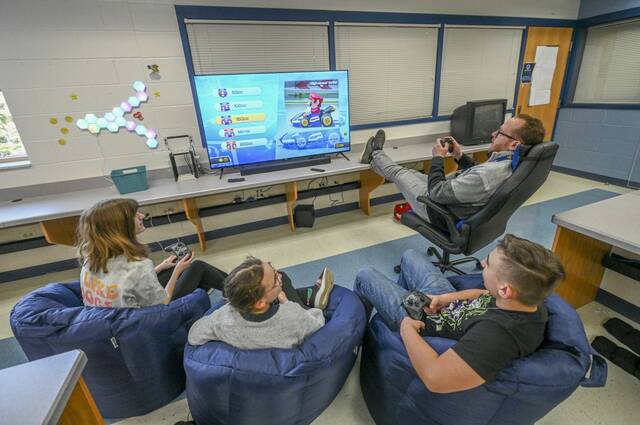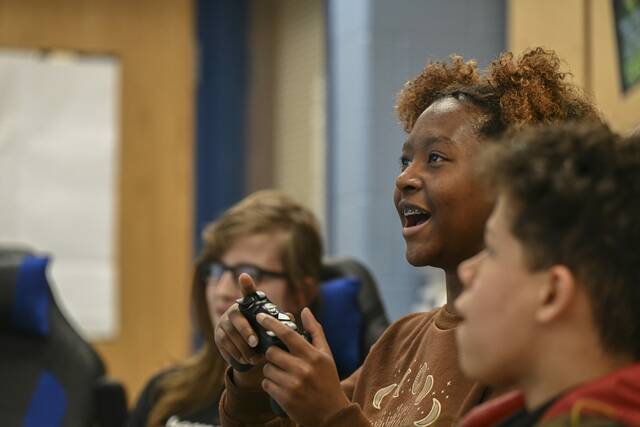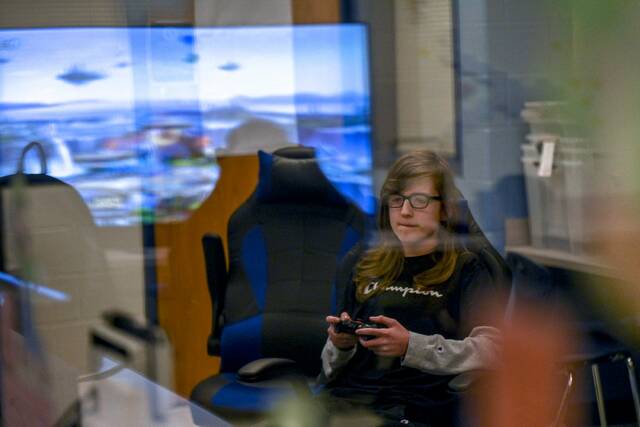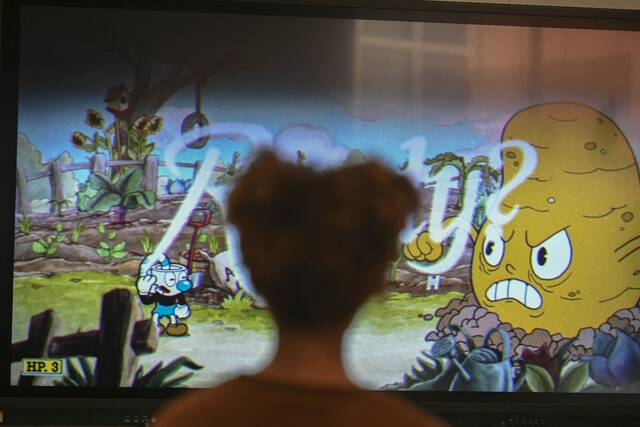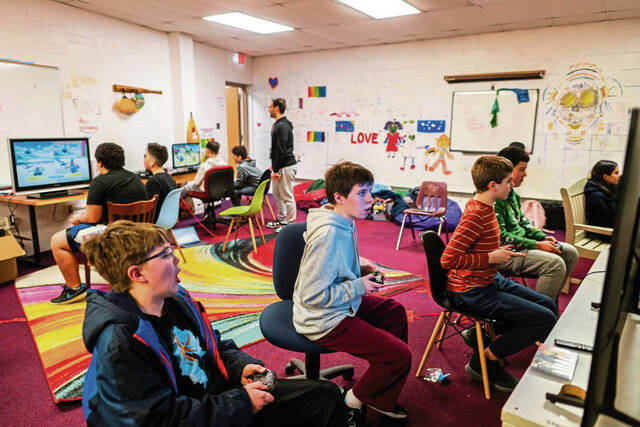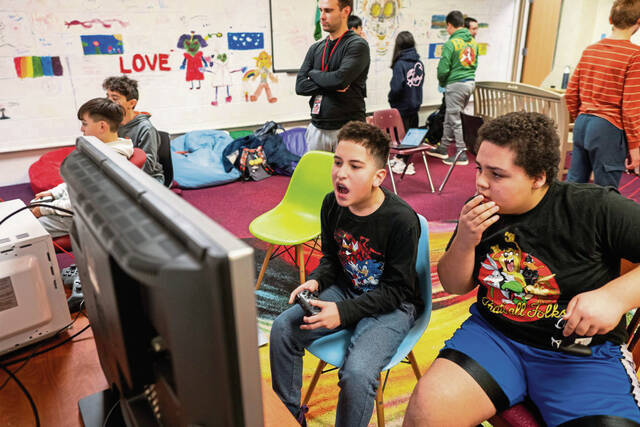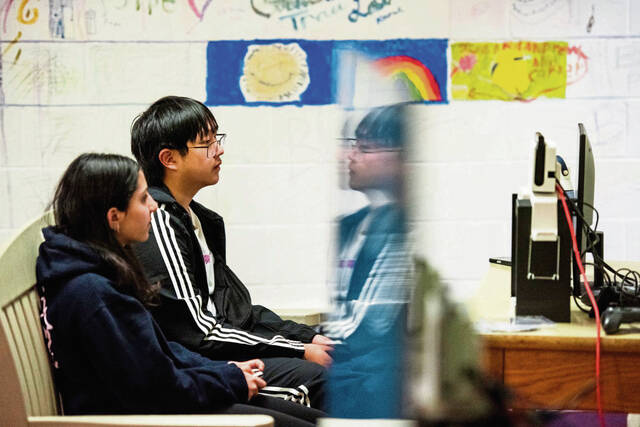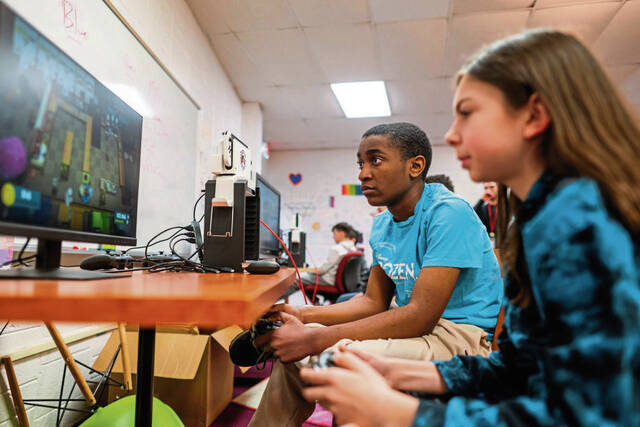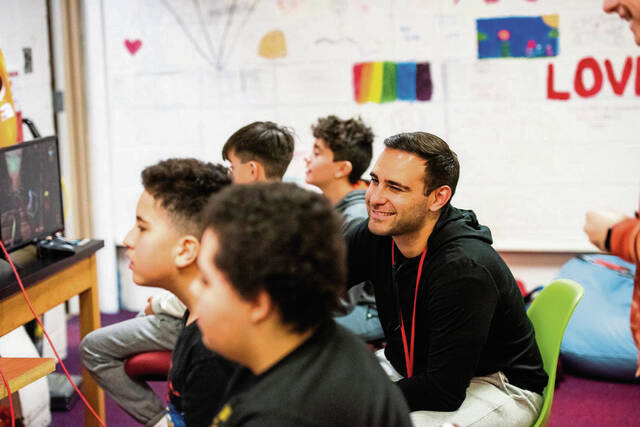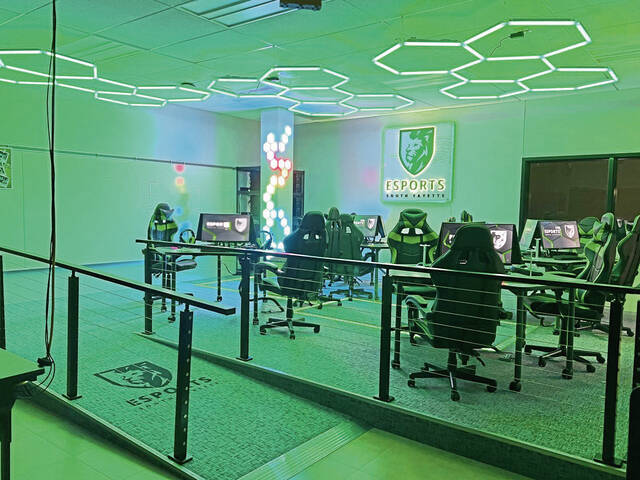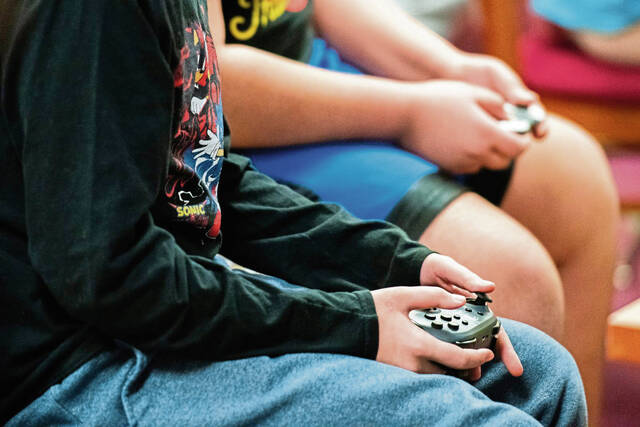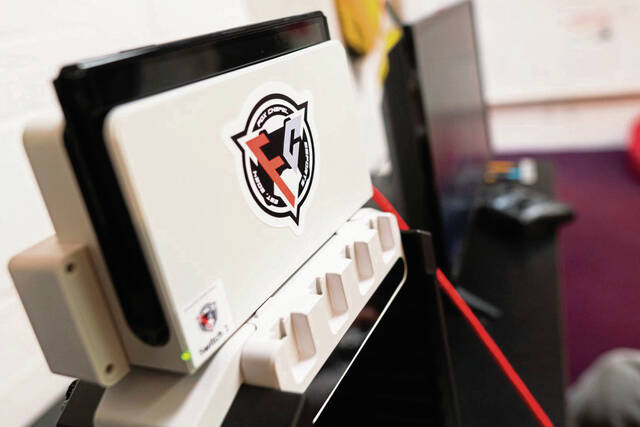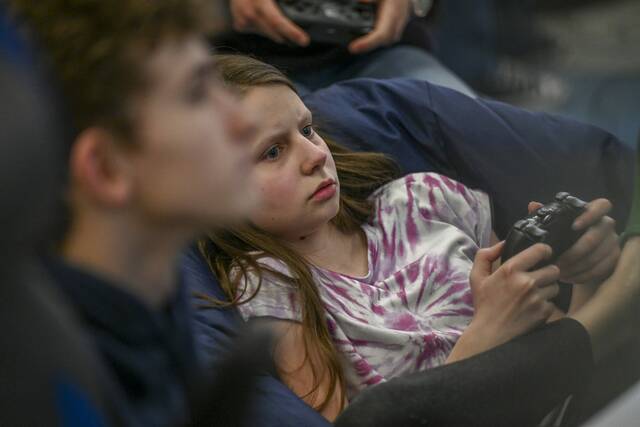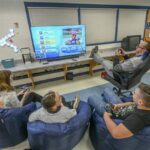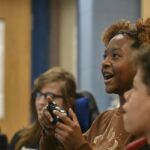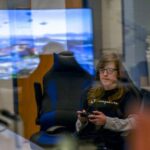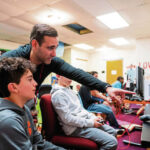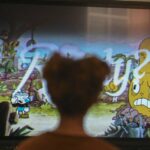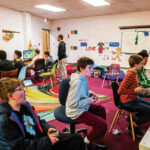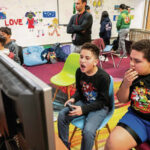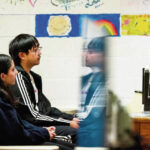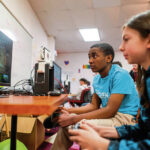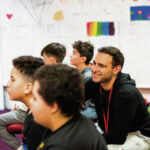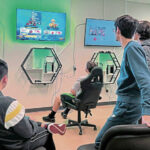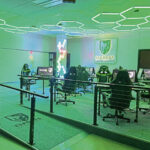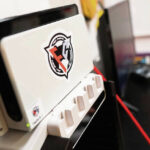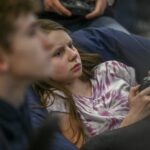For Matt Murslack, the start of every meet for his fledgling unified video gaming club is like stepping onto the field for a real-life big game.
The eighth grade teacher at Fox Chapel Area’s Dorseyville Middle School delivers a fiery motivational speech and lessons in sportsmanship.
Then the competition starts, with special needs students paired with their more neurotypical peers taking on teams from other schools in a variety of online games.
Unlike other unified sports teams, such as track and field or bocce, there’s little difference among the special needs students and their teammates when it comes to competing.
“Traditional models often position students with disabilities as recipients of assistance, unintentionally framing inclusion as a one-way street,” said Megan Collett, Fox Chapel Area executive director of instructional and innovative leadership.
In this league, anyone can be the most valuable player and lead their team to victory.
The after-school gaming league, comprising students from Freeport Area, Fox Chapel Area, Pittsburgh Public Schools, South Fayette and Beaver Area school districts, is the first of its kind in Pennsylvania.
Students in sixth through 12th grades test their skills in Mario Kart and Super Smash Bros., all while retooling inclusion as a two-way street.
“Seeing them treat each other right is awesome,” Murslack said. “They root for each other, and it’s great.”
Esports, he said, is special because it opens the door for even more students than traditional unified teams. It requires no athleticism, but students still reap the benefits of being part of a school team.
Uriah Murray, 14, a Dorseyville eighth grader, said when he first got a Nintendo Switch, he played for hours on end by himself.
“Now, I have a room full of people to play with that I have made friends with and I care about,” Uriah said. “It feels amazing.”
Robert Harris, Freeport Area instructional technology coordinator, said the program, though still in its early stages, has quickly evolved into a supportive and inclusive space for all the students.
“The program features in-house competitive gaming, unified esports competitions and regularly scheduled gaming opportunities for students in our autistic support and life skills programs,” Harris said. “These are meaningful experiences.”
The league uses gaming technology to foster teamwork, problem-solving and empathy in a way that feels relevant and exciting to students, Collett said.
And the leadership development could benefit students long-term as they search for jobs post-high school.
According to the Special Olympics, the world’s largest sports organization for children and adults with intellectual disabilities, unemployment for neurodiverse people is more than twice as high as for the general population. Only 44% of adults 21 to 64 with disabilities are in the labor force, according to the group’s website.
But joining a unified club can bolster confidence, communication skills and collaboration.
Gaming is the newest offering in a string of unified sports offered at local schools. Many have introduced bocce, track and basketball — but esports is unique because it opens the door to students of all physical abilities.
“We are so very proud to be able to offer this wonderful, unique opportunity to our students,” Freeport Area Superintendent Ian Magness said.
Students from the participating schools will converge at O’Hara Elementary School for a first-of-its-kind tournament May 8.
Already, they compete virtually every week through a program backed by a $35,000 Moonshot Grant from The Grable Foundation, the Claude Worthington Benedum Foundation and an additional grant from PlayVRS for equipment and gaming codes.
Preston Waynik, 12, a Dorseyville sixth grader, said he joined the club on a whim but has found it opened social connections he hadn’t made before.
“I didn’t know any of these people before,” Preston said. “It’s nice being part of a team.”
Games are chosen for their accessibility, with a focus on those that emphasize teamwork, said Kevin Maurer, South Fayette esports program director.
“Video gaming is an equalizer,” Maurer said. “It brings students from different backgrounds together to build friendships between those who may not otherwise spend time together.”
Fox Chapel Area Coach Andrew Shaw said gaming is co-ed, all-inclusive and engages students who might not otherwise be able to participate in school activities or athletics.
Shaw was eager to start the club in the school’s old TV studio, now filled with gaming equipment, bean bags and colorful rugs.
“There are no barriers,” Shaw said. “All kids are welcome.”
The new collaboration rethinks how inclusion is practiced in both education and sports, Collett said, by using it as a platform for mutual empowerment.
“It moves beyond inclusion to equity, where all participants are equally valued and contribute to the team’s success,” she said.
Unified esports has proved that all students bring unique skills to the table — or to the screen — Shaw said.
Many already have a passion for gaming. The league gives them a “team experience” with a structured, coached environment where students from diverse backgrounds bond over a shared interest.
Elijah Turner, 15, an eighth grader at Dorseyville, has participated in other school activities such as acting in “Seussical” and “Frozen Jr.”
The gaming league, Turner said, puts his strategic thinking to good use.
“I like competing with my team,” he said.
Maurer, at South Fayette, said capitalizing on the growing popularity of gaming is a smart move to connect students of all abilities.
“This takes the perception of video gaming and flips it on its head,” Maurer said. “Kids aren’t sitting in their bedrooms playing. They’re coming together and building problem-solving and teamwork skills.
“This fills the bucket of belonging in school.”


